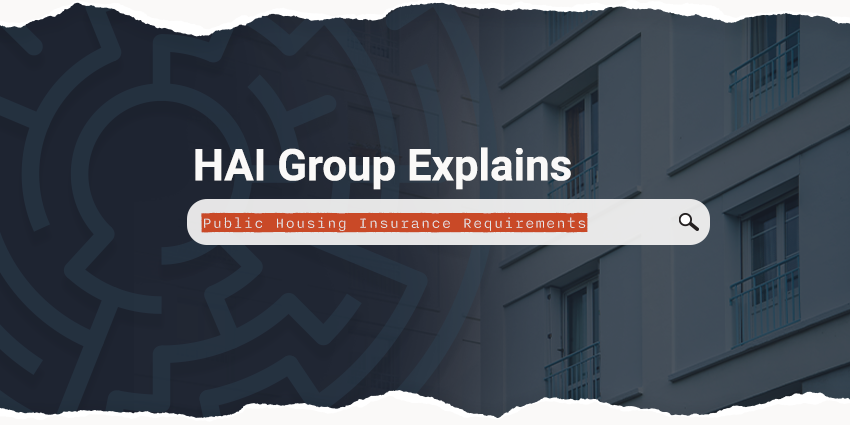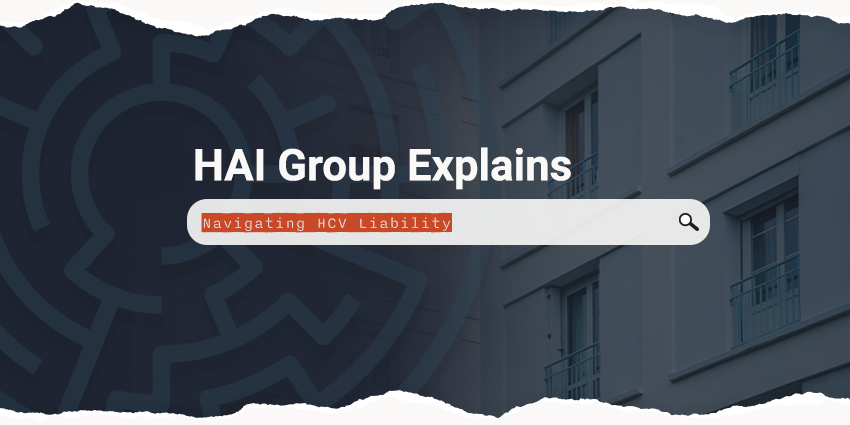Insurance is crucial for businesses, offering a safety net against potential financial losses due to unforeseen events. For public housing agencies (PHAs), insurance isn't just about protecting assets and property—it's a requirement tied to funding from the U.S. Department of Housing and Urban Development (HUD).
Annual Contributions Contract: The pillar of public housing insurance requirements
At the heart of public housing insurance obligations lies the Annual Contributions Contract (ACC), an agreement codified in federal regulations that governs the terms HUD provides financial support to PHAs for housing assistance and administrative costs. Insurance coverage requirements are just one of several compliance categories outlined in the ACC.
"Under the ACC, HUD agrees to make payments to the PHA, over a specified term, for housing assistance payments to owners and for the PHA administrative fee," the federal regulation states. "The ACC specifies the maximum payment over the ACC term. The PHA agrees to administer the program in accordance with HUD regulations and requirements.
The ACC requires that PHAs obtain insurance from licensed companies authorized to underwrite policies within their respective states. For instance, HAI Group offers tailored commercial property and general liability coverage for public housing organizations across 48 states and the District of Columbia.
Angel Fear, assistant director of account services with HAI Group, referred to the ACC as "the foundation outlining the coverage necessary for PHAs to receive HUD funding."
"HAI Group's Account Services team is ready and available to ensure PHAs meet these federal insurance requirements," she added.
Since the passage of HUD's 1992 Appropriations Act, PHAs can procure insurance coverage from nonprofit entities owned and controlled by PHAs without going through a competitive bidding process. However, PHAs must adhere to HUD's competitive selection procedures when obtaining insurance from other entities.
Required versus recommended PHA insurance coverages
The ACC outlines mandatory and recommended insurance. At the core, mandatory coverages include commercial property and liability insurance.
Property insurance must be on a replacement cost basis, covering the cost to replace damaged property with comparable material. Unlike "actual cash value" insurance, depreciation isn't factored in, ensuring complete coverage for PHAs and safeguarding the federal government's interest in PHA properties.
Additional ACC-required coverages include:
- Workers' compensation and employers' liability
- Owned and non-owned automobile liability
- Theft, disappearance, and destruction (mandatory only if the amount of cash and checks on hand at any one time exceeds the amount prescribed by HUD, which is currently $5,000).
- Employee dishonesty (also known as fidelity bond coverage)
- Boiler and machinery (mandatory only if steam boilers are installed)
- Flood insurance (mandatory only for properties located in a flood plain, as determined in the Federal Government's National Flood Insurance Program—PHAs should subscribe to receive FEMA notifications whenever Flood Maps are updated)
- Lead-based paint liability (mandatory for PHAs undergoing lead-based paint testing and abatement)
ACC recommended coverages include:
- Boiler and machinery: Recommended if there is extensive central air conditioning, electrical transformers, or similar equipment.
- Directors and officers or public officials' liability
- Law enforcement liability: Highly recommended if exposure exists and coverage is excluded from general liability policy.
PHAs can seek waivers for insurance requirements from HUD, especially if they opt for self-insurance methods or have alternative risk management strategies.
Are PHAs required to carry insurance for Housing Choice Voucher locations?
Regarding Housing Choice Voucher (HCV) program locations, HUD mandates PHAs carry adequate employee dishonesty coverage for employees handling cash or authorized to sign checks or certify vouchers.
While there are no other insurance requirements, according to HUD, past legal actions against PHAs by tenants of Housing Choice Voucher Program units highlight potential premises liability risks.
"While it's at the discretion of PHAs administering HCV locations to purchase commercial liability coverage, we highly recommend investing in this layer of protection," Fear said.
Premises liability entails the responsibility of property owners, landlords, and property managers to uphold a secure environment for both tenants and visitors. In cases where individuals suffer injuries or harm due to unsafe property conditions, property stakeholders can be held liable through civil lawsuits. Negligent security, within the realm of premises liability law, focuses on the obligation of property owners, landlords, and managers to implement reasonable and necessary measures for shielding individuals on their property from foreseeable harm related to security risks.
In the contemporary landscape, there is heightened scrutiny on the adequacy of security measures in multifamily housing, placing property owners, landlords, and managers under increased legal scrutiny, said Janelle Howard, a regional claims manager with HAI Group.
"The landscape of premises liability has undergone a seismic shift in the multifamily industry due to the rise of social inflation and the looming specter of nuclear verdicts," Howard said.
Read about the evolving landscape of multifamily premises liability in this blog post.
Need assistance navigating HUD's insurance requirements?
HAI Group's team of account executives is committed to supporting PHAs in meeting these obligations. Whether through direct coverage placement or leveraging a network of trusted insurance partners, HAI Group can help PHAs ensure compliance and robust protection against potential risks.
This article is for general information only. HAI Group makes no representation or warranty about the accuracy or applicability of this information for any particular use or circumstance. Your use of this information is at your own discretion and risk. HAI Group and any author or contributor identified herein assume no responsibility for your use of this information. You should consult with your attorney or subject matter advisor before adopting any risk management strategy or policy.







